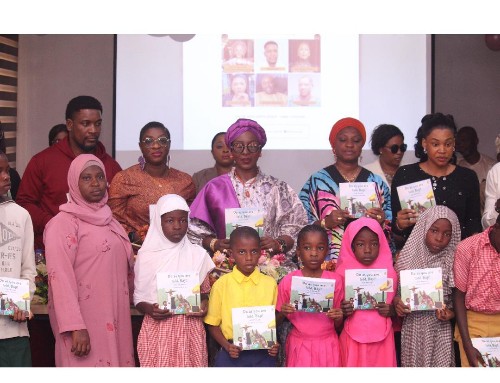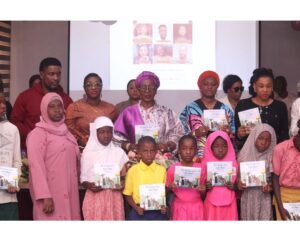Three Nigerian nationals accused of operating an international fraud scheme have been extradited to the Southern District of Florida, United States of America to face federal charges.
This development was confirmed in a statement issued by the United States Department of Justice on Friday.
The statement said one of the suspects, Kennedy Ikponmwosa, was extradited from Spain and he made his initial appearance before US Magistrate Judge Edwin G. Torres on April 18.
Iheanyichukwu Jonathan Abraham and Jerry Chucks Ozor were also extradited from the United Kingdom on Friday and would make their initial appearances before US Magistrate Judge Eduardo I. Sanchez on Monday in Miami.
Ikponmwosa, 51; Ezennia Peter Neboh, 48; and Prince Amos Okey Ezemma, 49, of Madrid, Spain; and Abraham, 44; Ozor, 43; and Emmanuel Samuel, 39, of London, United Kingdom, will face federal charges in Miami, Florida.
According to the release, Neboh, Ikponmwosa, Abraham, Samuel and Ozor were arrested in April 2022 by authorities in Madrid and London based on an indictment filed in the Southern District of Florida and had remained incarcerated since then.
Samuel reportedly pleaded guilty to conspiring to commit mail fraud and wire fraud on March 27.
According to court documents, the defendants are charged with operating an inheritance fraud scheme.
Over the course of more than five years, they allegedly sent personalised letters to elderly consumers in the United States, falsely claiming that the sender was a representative of a bank in Spain and that the recipient was entitled to receive a multimillion-dollar inheritance left for the recipient by a family member who purportedly had died years before in Spain.
Victims were told that before they could receive their purported inheritance, they were required to send money for delivery fees, taxes and payments to avoid questioning from government authorities.
Victims sent money to the defendants through a complex web of US-based former victims, whom the defendants convinced to serve as money mules.
According to the indictment, victims who sent money never received their purported inheritance funds.
Principal Deputy Assistant Attorney General Brian M. Boynton, head of the Justice Department’s Civil Division, said: “The Department of Justice’s Consumer Protection Branch will pursue and prosecute transnational criminals who defraud U.S. consumers, wherever they are located.
“I thank the Kingdom of Spain and the UK for their tireless efforts in assisting U.S. authorities to find and arrest these individuals so that they may face charges here in the United States.
“The Justice Department and U.S. law enforcement will continue to work closely with law enforcement partners across the globe to bring to justice criminals who attempt to defraud U.S. victims from outside the United States.”
“The U.S. Postal Inspection Service constantly strives to protect our communities from predatory criminals seeking to abuse and exploit the most vulnerable members of our society,” said Postal Inspector in Charge Juan A. Vargas of the U.S. Postal Inspection Service (USPIS) Miami Division.
“This case is an example of how Postal Inspectors will vigorously pursue fraudsters and ensure that they are brought to justice for the crimes they have committed.”
“These extraditions prove that by pulling law enforcement agencies together, we can best focus on investigating individuals and illicit criminal organizations associated with foreign-based fraud schemes that disproportionately affect vulnerable seniors,” Special Agent in Charge Scott Brown of Homeland Security Investigations (HSI) said.
“I want to thank everyone involved in this investigation and in the extradition process for their dedication; together we have the tools to keep our elderly from falling prey to these scams.”
The defendants are all charged with conspiracy to commit mail and wire fraud, as well as mail fraud and wire fraud.
Neboh and Samuel were both extradited earlier this year.
If convicted, Ikponmwosa, Abraham and Ozor each face a maximum penalty of 20 years in prison per count.

 BIG STORY4 days ago
BIG STORY4 days ago
 BIG STORY3 days ago
BIG STORY3 days ago
 BIG STORY4 days ago
BIG STORY4 days ago
 BIG STORY4 days ago
BIG STORY4 days ago
 BIG STORY3 days ago
BIG STORY3 days ago
 BIG STORY15 hours ago
BIG STORY15 hours ago
 BIG STORY16 hours ago
BIG STORY16 hours ago
 BIG STORY3 days ago
BIG STORY3 days ago



























